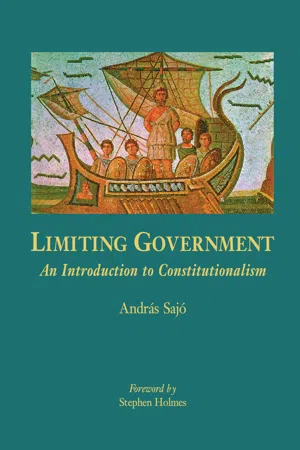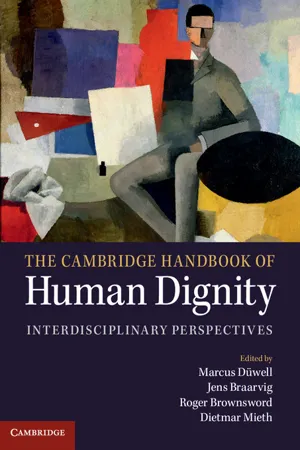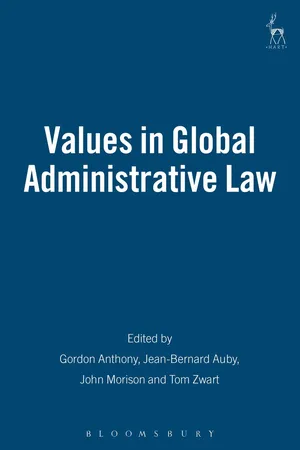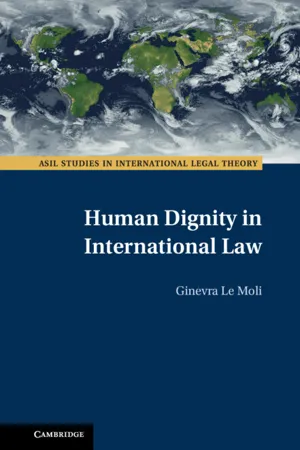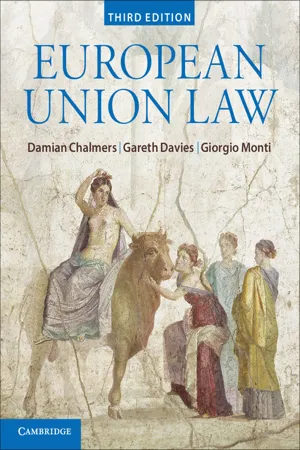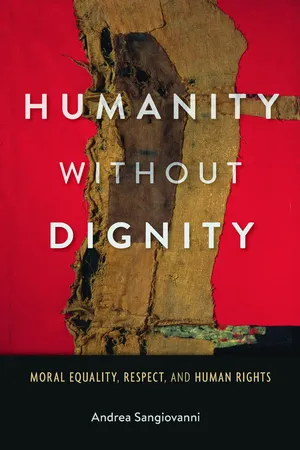Law
Fundamental Human Rights
Fundamental human rights are essential entitlements and freedoms that every individual is inherently entitled to, regardless of their nationality, ethnicity, gender, or any other status. These rights encompass civil, political, economic, social, and cultural aspects, and are protected by national and international laws. They include the right to life, liberty, equality, and dignity, as well as freedom of expression, religion, and assembly.
Written by Perlego with AI-assistance
Related key terms
1 of 5
10 Key excerpts on "Fundamental Human Rights"
- eBook - PDF
Introduction To Governance NQF2 SB
TVET FIRST
- M van Heerden, LC van Jaarsveldt A Inghels(Authors)
- 2017(Publication Date)
- Macmillan(Publisher)
violate: fail to comply with (a law, a rule or formal agreement) commission: deliberate action; an instruction or command given to a person or group omission: failure to do something; a failure to fulfil a moral or legal duty New words 54 Module 4 Unit 4.1: Explain the terms ‘human rights’ and ‘fundamental freedoms’ Human rights are the basic rights to which we are entitled as human beings. They guarantee us a meaningful and decent life. You may already be wondering what exactly is intended by describing a right as fundamental and in what circumstances such a description is justified. In many ways, the words ‘rights’ and ‘freedoms’ mean similar things. The word ‘fundamental’ means at the most basic level, or at the heart of the subject. We often see newspaper reports about fundamental religions, and these are simply religions that have gone back to the origins – or very basic levels – of their beliefs. Fundamental rights are those that are at the heart of people living and working together, such as: l Treating each other with dignity. l Equal access to all opportunities. l Freedom to live peacefully within the law. My fundamental rights to work and live where I want are protected by the Bill of Rights The Universal Declaration of Human Rights, and the Freedom Charter The Fundamental Human Rights we now enjoy in South Africa are formally stated in Chapter 2 of our Constitution and are known as the Bill of Rights. These rights are based on the rights expressed by the UN in the Universal Declaration of Human Rights and by the South African Congress Alliance in the Freedom Charter. The history and basis of these two documents were discussed in Module 2. We will now look more closely at some of the points in these documents as well as the corresponding rights in the Bill of Rights. Universal Declaration of Human Rights (extracts) l Article 1 All human beings are born free and equal in dignity and rights. - eBook - PDF
Habermas
Introduction and Analysis
- David Ingram(Author)
- 2011(Publication Date)
- Cornell University Press(Publisher)
Furthermore, as a related matter, the moral justification and meaning of human rights refers not only to harms that persons have endured at the hands of governments but also—and more fundamentally—to shortfalls in the secure enjoyment of basic goods that persons need in order to cultivate their basic hu-manity. The critical reflection (or deliberation) that progressively clarifies the meaning of basic human capabilities must unfold as the collective enterprise of humanity itself, as it stretches democratic impartiality beyond all spatial and temporal limits. So construed, human rights designate goals or standards against which we judge shortfalls in basic goods that any fully civilized society ought to provide its citizens. This exclusively moral understanding of human rights thus desig-nates an aspiration, as the preamble to the UDHR puts it, that is urged on all of us to realize at some unspecified time in the future, without regard to our citizenship or official status. In turn, the duties and responsibilities that flow from this aspiration emerge in the course of a global dialogue concerning our own human capabilities and society’s failure to develop them equally and in-clusively. In the words of Habermas, human rights “function . . . as sensors for exclusionary practices exercised in their name” ( PC 120). 16. “Human Rights are juridical by their very nature. What lends them the appearance of moral rights is not their content, and most especially not their structure, but rather their mode of validation, which points beyond the legal order of nation states” ( IO 190). The Foundational Rights 177 By contrast, when considered as a decision procedure for resolving current normative conflicts—and not as a process of enlightenment—Habermas’s dis-course theory inclines toward a different understanding of human rights. - eBook - PDF
Limiting Government
An Introduction to Constitutionalism
- András Sajó(Author)
- 1999(Publication Date)
- Central European University Press(Publisher)
But if an eccentric or different person is treated in a manner that causes him distress, injury, or degrad es the core of his dignity, this may amount to crime or tort, not necessarily because of a human right to be differ ent, but becaus e liv ing in security impl ies that the sta te has to make laws to safeguard security. We consider fundamental rights to be general and universal, that is, everybod y is entitled to them. lt fol lows that the liberties and rights of a people living in a country should be guaranteed by law and the constitu-tion as things to which the people are entitled. ln a constitutional sy s-tem, this requires us to then answer the following questions: What are the constitutionalized human ri ghts (fundamental rights)? ln other words, what kind of rights would one need to ensure freedom in a constitu-tional system? What follows if a right is claimed as a fundamental right? Who is bound by it? The state, or the citizens, too? And what does being bound mean? Simply to honor the claim, or noninterven-tion, or the unrestricted activity of the person who is enti tled to the right? Or the protection and enhancement of the right and its holder, too? (Do we prevent anyone from obstruc ting an action that is based on a right? Do we call to account the person who violates a right? Do we provide the conditions of freedom and the organizat ion of fre e action?) Originally, freedom seem ed an absolute right. Living in a state and operating the fundamental rights in a state bring about a situa tion where 252 Fundamental Rights the exercise of freedom comes up against other freedoms and require-ments concerning the functioning of the state. To what extent can fun-damental rights be restricted? These questions require a l ega l definition. All definitions are negations so it is important who makes the definitions, that is, who makes the nega-tions and exclusions. lt is at this stage that the checks-and-balances con-dition of constitutionalism becomes important. - eBook - PDF
Exclusion from Public Space
A Comparative Constitutional Analysis
- Daniel Moeckli(Author)
- 2016(Publication Date)
- Cambridge University Press(Publisher)
In the nineteenth century, fundamental rights were still mainly understood to be constitutional guarantees for citizens. International law, with some exceptions such as conventions prohibiting slave trade and the treaty system for the protection of minorities adopted after the First World War, had nothing to say about the way states could treat individuals. 17 It was only after the horrors of the Second World War that the protection of individual rights became a subject of concern at the 12 Commager, ‘America and the Enlightenment’ (1988), 247. 13 See Rutland, The Birth of the Bill of Rights (1955), pp. 24–40. 14 See, especially, the opening words of the US Declaration of Independence of 4 July 1776. 15 The original text of the declaration is available on the website of the French Ministry of Justice, at www.textes.justice.gouv.fr/textes-fondamentaux-10086/droits-de-lhomme-et- libertes-fondamentales-10087/declaration-des-droits-de-lhomme-et-du-citoyen-de-178 9–10116.html. An English translation is available on the website of the Avalon Project, at http://avalon.law.yale.edu/18th_century/rightsof.asp. 16 For Switzerland, see Kölz, Der Weg der Schweiz zum modernen Bundesstaat (1998), pp. 15–84; Kölz, Neuere schweizerische Verfassungsgeschichte (1992), p. 618. 17 For an overview, see Bates, ‘History’ (2014), 23–8. 5.1 fundamental and human rights 201 international level. Thus, in the UN Charter of 1945 member states committed themselves to promoting human rights, 18 and with the UDHR of 1948 the General Assembly of the UN adopted the first international document setting out the rights to which every human being is entitled to, simply by virtue of being human. The UDHR is drafted in language that is strikingly similar to that of the constitutional documents of the eighteenth century, 19 reflecting a strong influence of Enlightenment thinking. - eBook - PDF
The Cambridge Handbook of Human Dignity
Interdisciplinary Perspectives
- Marcus Düwell, Jens Braarvig, Roger Brownsword, Dietmar Mieth(Authors)
- 2014(Publication Date)
- Cambridge University Press(Publisher)
Second, there is the question of how we should understand the role of human dignity in national legal systems. Finally, there is the question of whether positive law is enhanced by references to human dignity or whether it would be an improvement to eliminate all such legal allusions. Human dignity and human rights as universal values: from one declaration to another The notion of human dignity is intimately connected to the cornerstones of modern human rights thinking – that is, to the United Nations’ Universal Declaration of Human Rights (UDHR) of 1948, together with its two partner Covenants, the International Covenant on Economic, Social and Cultural Rights and the International Covenant on Civil and Political Rights, both of 1966. In the Preamble to each of these instruments, we read that ‘recognition of the 2 Roger Brownsword inherent dignity and of the equal and inalienable rights of all members of the human family is the foundation of freedom, justice and peace in the world’; and Article 1 of the UDHR famously proclaims that ‘All human beings are born free and equal in dignity and rights.’ In the early years of the present century, in the particular context of ‘medicine, [the] life sciences and associated technologies’, UNESCO has made a com- parable attempt to underline the centrality of respect for human rights and human dignity. Notably, the Universal Declaration on Bioethics and Human Rights, 2005, is peppered with references to human dignity. For example, Article 2(d) states that one of the aims of the Declaration is to recognize ‘the importance of freedom of scientific research and the benefits derived from scien- tific and technological developments, while stressing the need for such research and development to . . . respect human dignity, human rights and fundamental freedoms’. - eBook - PDF
- Gordon Anthony, Jean-Bernard Auby, John Morison, Tom Zwart, Gordon Anthony, Jean-Bernard Auby, John Morison, Tom Zwart(Authors)
- 2011(Publication Date)
- Hart Publishing(Publisher)
13 Fundamental Rights in the Global and European Law Order JACQUELINE DUTHEIL DE LA ROCH È RE INTRODUCTION I S THERE A European approach of fundamental rights/human rights in a global world? The question may seem surprising as we are accustomed to associate human rights and universalism, by reference either to the French Declaration of the man and citizen of 1789 ( ‘ Men are born and remain free and equal in rights’) or to Article I of the Universal Declaration of Human Rights of 10 December 1948 ( ‘ All human beings are born free and equal in dignity and rights’). On the other hand it appears that legal systems have different concep-tions of human rights: cultural, political, ideological differences as to what should be regarded as fundamental and how rights should be protected. Human rights are not purely declaratory; they are more and more used by individuals and their advocates to defend cases, at least in those parts of the world where the level of education and political consciousness has grown. During the last 50 years or so, the European subcontinent engendered the most sophisticated system of supranational protection of human rights combining definition of rights and control of their implementation through the mechanism of the European Convention on Human Rights (ECHR) and the European Court of Human Rights. The European Union (EU) followed the same trend borrowing extensively from the ECHR system, while the national systems of protection of human rights developed alongside the international norms of human rights at global level. One may wonder whether or not developments at the global level benefit the regional and local levels. We will examine the conditions of adjust-ment between the European level and the others as regards, first, the definition of human rights and, secondly, their implementation. 297 - eBook - PDF
Creating Capabilities
The Human Development Approach
- Martha C. Nussbaum(Author)
- 2011(Publication Date)
- Belknap Press(Publisher)
If they are to deliver it, they need to know what it is. It seems urgently important to distinguish items that are genuinely funda-mental (the freedom of speech, protection of bodily integrity) from items that are not fundamental, and even bad. Legislators, courts, and administrative agencies cannot enforce such a conception un-less they know what it is. A written constitution is one handy way of making such entitlements explicit and giving them security against majority whim. Some nations work, instead, with unwritten under-standings of fundamental rights. Nonetheless, if they can be re-moved in an hour by an impatient majority—as the freedoms of speech and association were voted away during the State of Emer-gency declared by Indira Gandhi in 1975—then human dignity is in a perilous position, and the nation needs to find a better way of deliv-ering capability security. Supramajoritarian protection of some type for fundamental entitlements—whether in a written constitution or not—seems essential to that security. In other words, all societies that pursue a reasonably just political c r e a t i n g c a p a b i l i t i e s 74 conception have to evaluate human freedoms, saying that some are central and some trivial, some good and some actively bad, some deserving of special protection and others not. This evaluation also affects the way we will assess an abridgment of a freedom. Certain freedoms are taken to be entitlements of citizens based upon jus-tice. When any one of these is abridged, that is an especially grave failure of the political system. In such cases, people feel that the abridgment is not just a cost to be borne; it is a cost of a distinctive kind, involving a violation of basic justice. When some freedom out-side the core is abridged, that may be a small cost or a large cost to some actor or actors, but it is not a cost of exactly that same kind, one that in justice no citizen should be asked to bear. - eBook - PDF
- Ginevra Le Moli(Author)
- 2021(Publication Date)
- Cambridge University Press(Publisher)
154 SRS Bedi, The Development of Human Rights Law by the Judges of the International Court of Justice (Hart 2007), 321. 238 Human Dignity in International Law binding one or more duty-bearers. In particular, the relationship between human dignity and the instrument ‘human right’ can be seen more closely from three perspectives. The first perspective considers the relationship between value and right. In line with a purposive interpretation, the content of a right is determined by its underlying purpose. More specifically, the purpose of the right to human dignity is to realize the foundational value of human dignity and each person’s inviolable humanity. The second and third levels, instead, view the relation- ship of dignity and right from two configurations that human dignity assumes. Human dignity appears not only as a value principle but also as the object and source of rights. First, human dignity is qualified as inherent to all human persons, considered in their individuality and in their sociality. It can therefore be an inviolable and fundamental right in itself. Moreover, human dignity can be the source of other rights. It lies at the basis of all rights and must be respected and protected, thus creating corresponding positive and negative obligations. This twofold formulation of human dignity as an inviolable and fundamen- tal right and as mother-right of all rights will be the conceptual structure traced in the analysis of two dimensions, regional and international. Each dimension will be analysed, identifying how human dignity relates to the instrument, how it is formulated and, lastly, its relationship with other rights. 5.3.1 Right to Dignity Human dignity constitutes the essence of an inviolable and fundamental right, whose content reflects the value that it embodies. 155 This section examines the right to dignity from the regional (Section 5.3.1.1) and international (Section 5.3.1.2) perspectives. - eBook - PDF
European Union Law
Text and Materials
- Damian Chalmers, Gareth Davies, Giorgio Monti(Authors)
- 2014(Publication Date)
- Cambridge University Press(Publisher)
That ‘law’ must, in effect, be ‘adequately accessible and foreseeable, that is, formulated with sufficient precision to enable the individual – if need be with appropriate advice – to regulate his conduct’, to ‘foresee its consequences for him’, ‘to foresee, to a degree that is reasonable in the circumstances, the consequences which a given action may entail’. 95. The ‘law’ must therefore be sufficiently clear and foreseeable as to the meaning and nature of the applicable measures, and must define with sufficient clarity the scope and manner of exercise of the power of interference in the exercise of the rights guaranteed by the ECHR. A law which confers a 257 Fundamental Rights 63 Joint Committee of Houses of Parliament, A Bill of Rights for the United Kingdom? (29th Report, Session 2007–08, London, SO) vol. 1, para. 191. 64 J. Kenner, ‘Economic and Social Rights in the EU Legal Order: The Mirage of Indivisibility’ in T. Hervey and J. Kenner (eds.), Economic and Social Rights under the EU Charter of Fundamental Rights (Oxford, Hart, 2003) 1, 16–18. 65 Albeit that the right to ‘housing assistance’ is provided for in Article 34(3) (II-94(3) CT). 66 D. Ashiagbor, ‘Economic and Social Rights in the European Charter of Fundamental Rights’ (2004) 1 European Human Rights Law Review 62. There are a number of further general noteworthy features about the EUCFR. First, it incorporates a wider array of rights and freedoms than possibly any other human rights treaty. There are, thus, not just civil, political, economic and social rights, but protection of cultural and ecological interests as well. This can therefore be seen as ambitious and nu- anced in what it regards humans as needing for a good life. The centrality of socio-economic rights to aspiration and justice has been raised in contexts outside the European Union, with these being seen as no less important than civil liberties. 63 The counter-argument is a risk of an inflation of the language of rights. - eBook - PDF
Humanity without Dignity
Moral Equality, Respect, and Human Rights
- Andrea Sangiovanni(Author)
- 2017(Publication Date)
- Harvard University Press(Publisher)
But its usefulness must be evaluated by the role it plays in the particular discourse we are interested in. For example, as we will see in the next section, speaking of a rights violation as being either fundamental or nonfundamental can be very useful in the context of the law, where we need to fix certain definite categories of remedy to particular types of violations. The threshold chosen will, in many of those cases, be more or less arbitrary, given the fluidity of the underlying notion, but this vagueness in the borderline of the concept shouldn’t bother us any more than, say, age limits for any number of rights and privileges does (voting, driving, drinking, etc.). INDIVISIBILITY AND HIERARCHY AMONG HUMAN RIGHTS So far I have argued for a novel conception of what makes a right (or aspect of a right) fundamental. A right (or aspect of a right) is more or less fundamental according to the degree to which its violation struc-turally undermines the pursuit of all or most of our interests, and most significantly, our interests in the most important goods. In the conclu-sion of this chapter, I want to use this account to reflect on a controversy within debates on human rights, namely whether there is a hierarchy among human rights norms, and, if there is, how to characterize it. There has been very little philosophically written on the topic, so it is worth seeing whether the categories and theses we have been developing can be brought to bear on it. 14 This will also allow us to come full circle in our attempt to show that one of the central and most important aims of the international law of human rights is to protect our status as moral equals.
Index pages curate the most relevant extracts from our library of academic textbooks. They’ve been created using an in-house natural language model (NLM), each adding context and meaning to key research topics.


